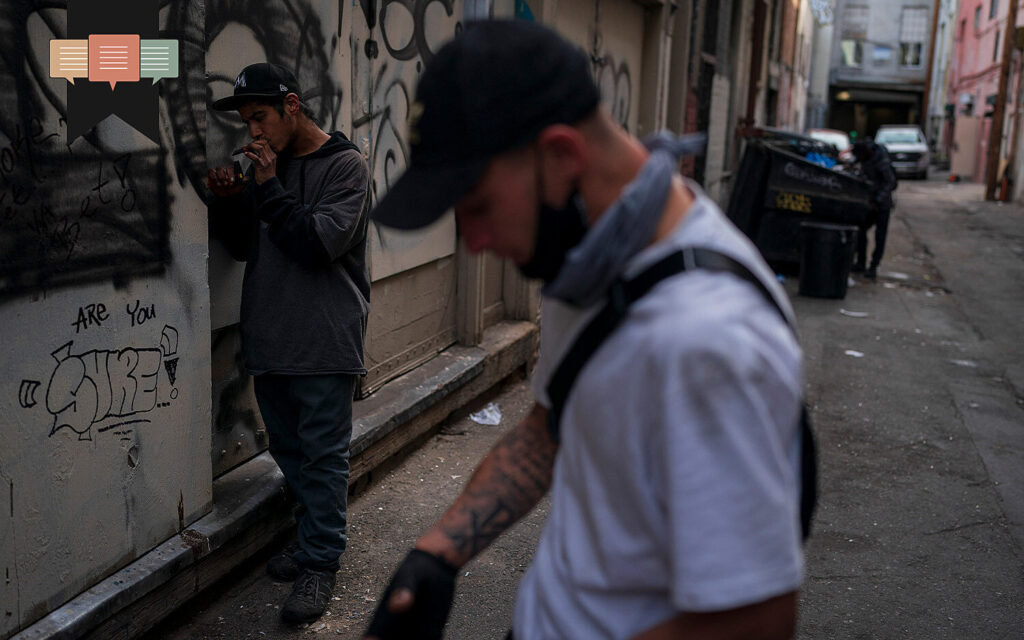
Published September 25, 2023
As the synthetic opioid crisis in America enters its second decade, many of us have grown numb to the grim statistics that chronicle its toll. Over the past 12 months, around 110,000 Americans have died of drug overdoses—nearly 300 per day—the vast majority triggered by synthetic opioids like fentanyl. One shocking recent story, however, put an exclamation point on this data: a 1-year-old child in New York City died after being exposed to fentanyl hidden under the sleeping mat at his daycare nursery. But the fentanyl epidemic is only one of many forms of addiction that seem to be destroying lives and communities throughout America. How should Christians make sense of this crisis?
We are often pulled in two directions when it comes to addiction. On the one hand, as Christians, we should be moved to compassion by the sight of anyone suffering in such bondage—a vivid picture of the bondage of sin that all of us experience. On the other hand, we may be keen to resist our culture’s tendency to portray addicts as one more category of helpless victims. In the face of the opioid crisis, much attention has focused—and rightly so—on the evils of pharmaceutical companies that grew rich off selling addictive drugs, but this may leave us wondering if we aren’t downplaying the personal responsibility of individuals who knowingly allow themselves to become enslaved to addictive substances. Is addiction a disease (the dominant category in public discourse today), or a choice?
Click here to continue reading.
Brad Littlejohn (Ph.D., University of Edinburgh) is the founder and president of the Davenant Institute. He also works as a fellow at the Ethics and Public Policy Center and has taught for several institutions, including Moody Bible Institute–Spokane, Bethlehem College and Seminary, and Patrick Henry College. He is recognized as a leading scholar of the English theologian Richard Hooker and has published and lectured extensively in the fields of Reformation history, Christian ethics, and political theology. He lives in Landrum, S.C., with his wife, Rachel, and four children.
Brad Littlejohn, Ph.D., is a Fellow in EPPC’s Evangelicals in Civic Life Program, where his work focuses on helping public leaders understand the intellectual and historical foundations of our current breakdown of public trust, social cohesion, and sound governance. His research investigates shifting understandings of the nature of freedom and authority, and how a more full-orbed conception of freedom, rooted in the Christian tradition, can inform policy that respects both the dignity of the individual and the urgency of the common good. He also serves as President of the Davenant Institute.











